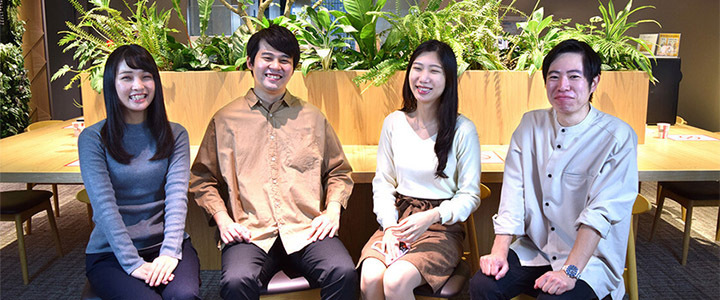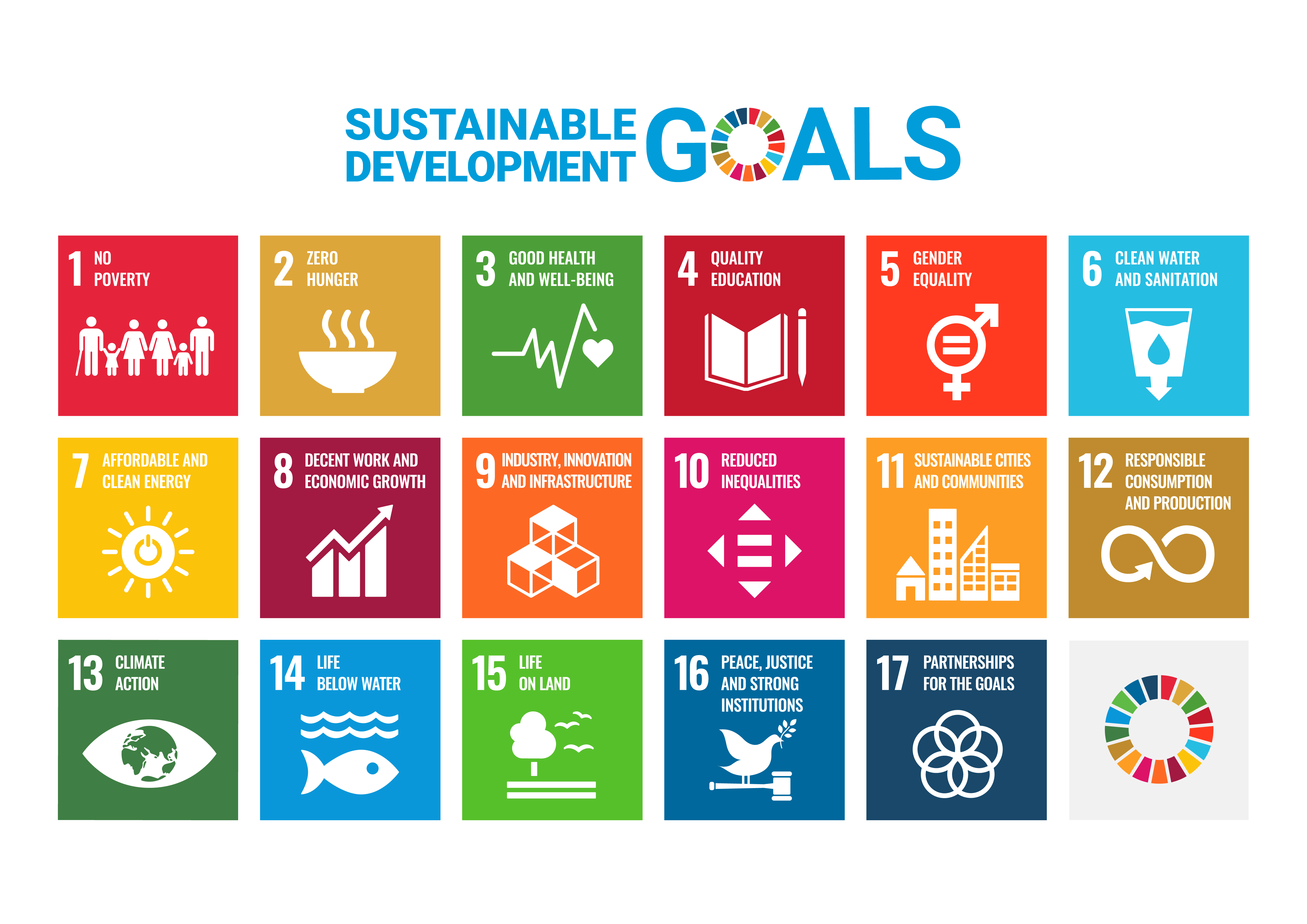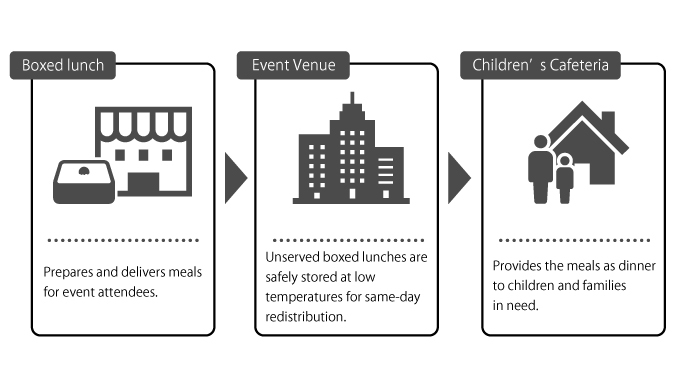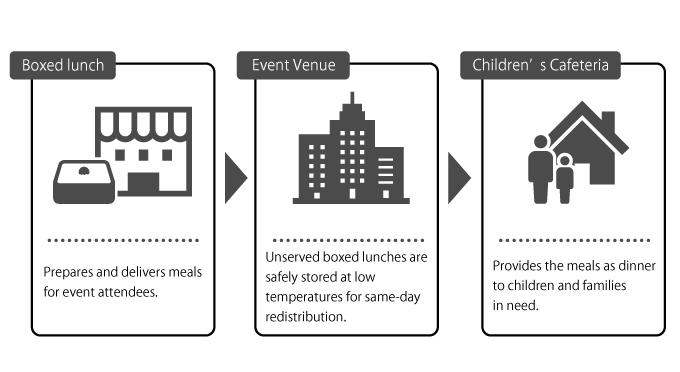Sustainability
Creating a Sustainable Society
Creating Value Through Business Events
JCS embraces this role, delivering solutions to today’s challenges and driving innovation for the future.
As a company in the MICE industry, JCS is committed to achieving a sustainable society in alignment with two frameworks adopted by the United Nations: the Sustainable Development Goals (SDGs) that are part of the 2030 Agenda for Sustainable Development; and the Paris Agreement, an international framework on climate change.
JCS offers solutions to social challenges and creates innovation
Our corporate philosophy is making people around the world happy through communication. Based on this corporate philosophy, JCS has expanded its services to adapt to the changing times and the needs of society under the management philosophy, “Create the Future Communication.”
In line with this philosophy, JCS has long focused its services on conventions and events that bring together many people for communication. In recent years, we have also expanded into virtual and hybrid formats that enable people-to-people communication under any circumstances. This evolution has provided opportunities to reconsider the meaning and added value of in-person gatherings while embracing new possibilities through technology.
As we face an increasingly uncertain future, the Business Events industry will play an even more critical role as a forum for discussing solutions to social challenges and generating innovation.
JCS will continue responding to the needs of society. Keeping communication at the core of our services, we will incorporate the values of environmental, social and economic sustainability into our continuous pursuit to create new value and innovation through collaboration and partnership.
The Beginning of Our Sustainability Initiatives
JCS formulated the CSR and Environmental Policy (currently the CSR and Sustainability Policy) in July 2008, shortly after Hirotake Chikanami was appointed President of JCS in April. The company then established a CSR and sustainability management system leveraging JCS’s extensive experience and expertise in organizing conventions. In September 2010, JCS founded the CSR and Environment Promotion Committee (currently the CSR and Sustainability Promotion Committee) composed of members from across the organization. In October, JCS managed the tenth meeting of the Conference of the Parties to the Convention on Biological Diversity (COP10) held in Nagoya. Our sustainability initiatives have spanned both internal and external engagement.
Currently, JCS maintains both ISO 20121 Event Sustainability Certification, an internationally recognized standard, and Eco-Action 21, a Japanese environmental management system promoted by the Ministry of the Environment. Together, these certifications reinforce our commitment to comprehensive sustainability initiatives.
JCS Becomes First Asian Company to Acquire BS 8901 Sustainability Certification, the Predecessor to ISO
The legacy left by holding events is gaining greater attention due to the interest in contributing to a sustainable society. In January 2011, JCS became the first company in Asia to obtain the BS 8901 British standard for Sustainability Management System for Events, which was developed for the London Olympics, incorporating the three aspects of environmental, social and economic sustainability.
JCS Becomes First Japanese Company to Acquire ISO 20121 Event Sustainability Certification
Coinciding with the 2012 London Olympics, BS 8901 turned into the ISO 20121 international standard that sets forth management system requirements for sustainable conference and event management. In August 2012, JCS became the first company in Japan to achieve ISO 20121 certification.*2
*2 Certification scope: Event management related to conventions organized by JCS
Managing events in accordance with ISO 20121 certification provides the benefits listed below to both the organizer and the event itself, and it represents an opportunity to deliver events with new added value.
-
ISO 20121 Features and Benefits
Facilitates event management that contributes to environmental, social and economic sustainability
Incorporates supplier participation, realizing sustainability through partnership
Helps ensure that events leave a positive legacy, helping to address social challenges
246 conventions operated by JCS under ISO 20121 (cumulative total as of March 31, 2025)
As a leading company in the convention industry, JCS is committed to offering Sustainable Conventions,*3 which consider environmental, social and economic sustainability to bring new added value to events and help create a sustainable society.
*3 Sustainable Conventions: Trademark registered by Japan Convention Services, Inc.
In addition to meeting international standards such as ISO 20121, we also comply with Japan’s nationally recognized environmental certification schemes, issued by accredited third-party organizations.
Egao no Hashi(“Bridge of Smiles”): Reducing Food Waste, Sharing Smiles [id="egaonohashi"]
-
 Egao no Hashi
Egao no Hashi
At Japan Convention Services (JCS), we are committed to promoting sustainability through the planning and operation of international conferences and corporate events. One of our focus areas is food waste reduction and the responsible use of surplus food to support local communities.
Large-scale events often involve extensive food and beverage provision, which can lead to excess. In the MICE industry—covering meetings, incentives, conferences, and exhibitions— this issue is one of the major challenges we face. To tackle this, JCS collaborates with event organizers and partners to estimate and control food quantities during the pre-management phase,and ensure it is redistributed appropriately to those who need better access to meals. These efforts help reduce waste while also supporting communities in needed.
One example of this initiative is the donation of unserved meals to community-based organizations, including local children’s cafeterias. Through such partnerships, we aim to support those in need and make better use of available resources.
Our approach to sustainability is not limited to internal practices. We work closely with stakeholders across the event value chain to encourage more sustainable operations. As environmental and social considerations become increasingly important in event planning, we believe early integration of such practices is essential.
While our impact may be modest, we see each event as a chance to make a meaningful contribution. From preparation to post-event actions, JCS supports practical, scalable solutions that bring long-term value to people, communities, and the broader environment.
Through these initiatives, we aim to ensure that events are not just temporary gatherings, but platforms that deliver lasting value.


